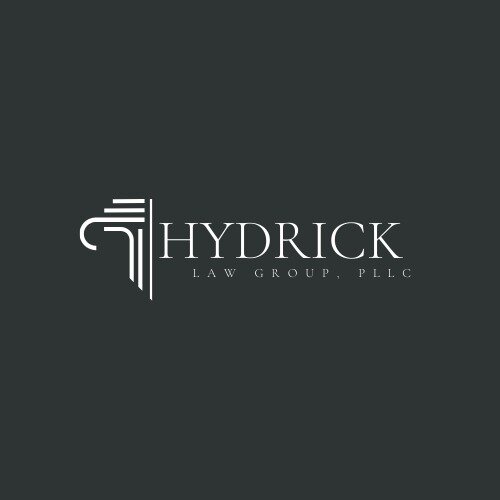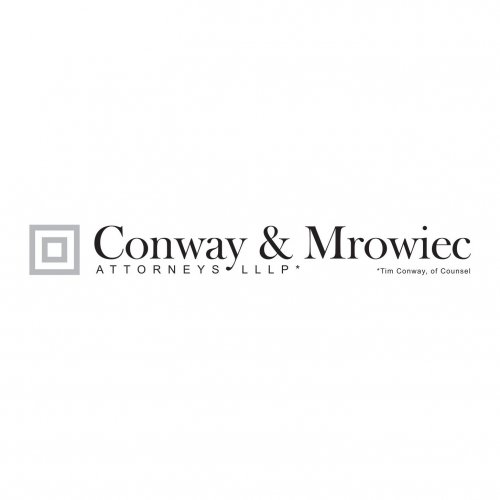Best Corporate & Commercial Lawyers in Chicago
Share your needs with us, get contacted by law firms.
Free. Takes 2 min.
List of the best lawyers in Chicago, United States
United States Corporate & Commercial Legal Articles
Browse our 1 legal article about Corporate & Commercial in United States written by expert lawyers.
- United States NY LLC Transparency Act 2026 Compliance Guide
- The federal Corporate Transparency Act (CTA) and New York's LLC Transparency Act are separate regimes: reporting to FinCEN does not satisfy New York's 2026 state filing requirement. Most small corporations and LLCs in the United States must file Beneficial Ownership Information (BOI) with FinCEN starting 2024, unless a specific federal... Read more →
About Corporate & Commercial Law in Chicago, United States
Corporate and commercial law in Chicago, Illinois, covers the legal frameworks and regulations that govern businesses, corporations, partnerships, and commercial transactions within the city and the broader Illinois area. These laws impact how businesses are formed, operated, sold, merged, or dissolved. Corporate law deals with the formation and governance of entities like corporations and LLCs, while commercial law governs day-to-day business contracts, sales, leases, and transactions. Chicago is a major commercial hub, home to a vast range of businesses from startups to global enterprises, so understanding the legal requirements here is essential for anyone involved in business activities.
Why You May Need a Lawyer
There are many scenarios in which individuals and business owners in Chicago may require legal guidance in the corporate and commercial law field. Common situations include:
- Choosing and setting up the legal structure for a new business (LLC, corporation, partnership, etc.)
- Dissolving, selling, or merging a business
- Reviewing, drafting, or negotiating commercial contracts and agreements
- Employment law issues including employment contracts and workplace policies
- Dealing with regulatory compliance and local business licensing
- Handling disputes between business partners, shareholders, or with other businesses
- Protecting intellectual property, trade secrets, or confidential information
- Navigating securities regulations or investment transactions
- Assisting with corporate governance and fiduciary duties
- Responding to lawsuits, administrative actions, or government investigations
Legal advice can help prevent costly disputes, ensure contractual compliance, and protect your interests in a complex legal environment.
Local Laws Overview
In Chicago, corporate and commercial activities are regulated by a combination of local, state, and federal laws. The State of Illinois primarily governs the creation and operation of business entities through statutes such as the Illinois Business Corporation Act and the Illinois Limited Liability Company Act. The City of Chicago also requires local business licenses and has ordinances affecting zoning, employment, and public health that impact commercial operations.
Some key aspects include:
- Entity Formation: Filing requirements are overseen by the Illinois Secretary of State. Chicago-based businesses must also comply with local registration and licensing requirements.
- Contracts: Illinois contract law controls most commercial agreements. Well-drafted contracts are crucial to minimize disputes.
- Employment Laws: Chicago has its own minimum wage ordinances, anti-discrimination rules, and fair workweek laws, in addition to state and federal regulations.
- Commercial Transactions: The Uniform Commercial Code as adopted in Illinois sets out key rules for sales, leases, and negotiable instruments.
- Dispute Resolution: Litigation is handled in Illinois state courts or federal courts, depending on the matter. Many contracts specify arbitration or mediation for dispute resolution.
- Compliance: Businesses must observe various local ordinances, including those relating to health, safety, zoning, taxes, and advertising.
Given the multiple layers of law and administrative regulation, businesses should ensure ongoing legal compliance to avoid penalties and disruptions.
Frequently Asked Questions
What is the easiest type of business entity to form in Chicago?
The Limited Liability Company (LLC) is a popular choice because it offers flexibility, limited liability protection, and relatively straightforward formation requirements in Illinois.
Do I need a lawyer to start a business in Chicago?
While it is not legally required, working with a lawyer is highly recommended to ensure that your business is set up correctly, contracts are sound, and all licensing and compliance issues are addressed from the start.
Are verbal contracts enforceable in Chicago?
In many cases, yes, but proving the terms of a verbal contract can be difficult. Certain transactions, like the sale of real estate, must be in writing to be enforceable under Illinois law.
What are the annual filing requirements for corporations in Illinois?
Corporations must file an annual report and pay an associated fee to the Illinois Secretary of State. Failure to do so can result in dissolution of the corporation.
Does Chicago have special rules for hiring employees?
Yes. In addition to Illinois and federal law, Chicago has a higher minimum wage, paid sick leave requirements, and fair scheduling ordinances that affect most employers.
What should I do if my business is being sued?
You should consult an experienced business attorney as soon as possible. Timely response is critical to preserve your rights and options in legal proceedings.
Can I use a standard contract template for my business agreements?
Templates can be a starting point, but customized contracts drafted or reviewed by a lawyer are important to address the specific needs and risks of your business in Illinois.
What licenses or permits does my business need in Chicago?
Requirements depend on your business type and location. The City of Chicago requires most businesses to obtain a business license and may require additional permits for food service, construction, or other regulated activities.
How can I protect my business’s intellectual property?
You may need to register trademarks, copyrights, or patents. Consult a lawyer about protecting trade secrets and using nondisclosure agreements with employees and contractors.
What are my options if my business partner wants to leave or there is a dispute?
It depends on your partnership or operating agreement. Many agreements set out procedures for resolving disputes or buying out a partner. If not, Illinois law provides default rules, but legal counsel is crucial for navigating these situations.
Additional Resources
Several governmental bodies and organizations offer guidance or services related to corporate and commercial law in Chicago:
- Illinois Secretary of State - handles business registrations, annual filings, and entity searches
- City of Chicago Business Affairs & Consumer Protection - provides business licensing and regulatory guidance
- Illinois Department of Commerce & Economic Opportunity - offers resources for small businesses and entrepreneurs
- Small Business Administration Chicago District Office - provides local programs and workshops
- Chicago Bar Association - offers lawyer referral services and legal seminars
- Illinois Attorney General’s Office - resources on consumer protection and business compliance
Next Steps
If you need legal advice in corporate or commercial law in Chicago, consider the following steps:
- Identify your legal issue or concern, such as entity formation, contract review, regulatory compliance, or a dispute.
- Gather all relevant documentation, including contracts, correspondence, and any notices or government filings.
- Contact an experienced local business attorney who understands Illinois and Chicago regulations.
- Schedule a consultation to discuss your situation and options. Many lawyers offer initial meetings to assess how they can assist you.
- Use local resources such as the Chicago Bar Association or government offices for referrals if needed.
Early legal advice can help you avoid costly mistakes and ensure your business operates smoothly within the law. Acting proactively is the best way to protect your commercial interests in the vibrant Chicago business environment.
Lawzana helps you find the best lawyers and law firms in Chicago through a curated and pre-screened list of qualified legal professionals. Our platform offers rankings and detailed profiles of attorneys and law firms, allowing you to compare based on practice areas, including Corporate & Commercial, experience, and client feedback.
Each profile includes a description of the firm's areas of practice, client reviews, team members and partners, year of establishment, spoken languages, office locations, contact information, social media presence, and any published articles or resources. Most firms on our platform speak English and are experienced in both local and international legal matters.
Get a quote from top-rated law firms in Chicago, United States — quickly, securely, and without unnecessary hassle.
Disclaimer:
The information provided on this page is for general informational purposes only and does not constitute legal advice. While we strive to ensure the accuracy and relevance of the content, legal information may change over time, and interpretations of the law can vary. You should always consult with a qualified legal professional for advice specific to your situation.
We disclaim all liability for actions taken or not taken based on the content of this page. If you believe any information is incorrect or outdated, please contact us, and we will review and update it where appropriate.
Browse corporate & commercial law firms by service in Chicago, United States
Chicago, United States Attorneys in related practice areas.

















